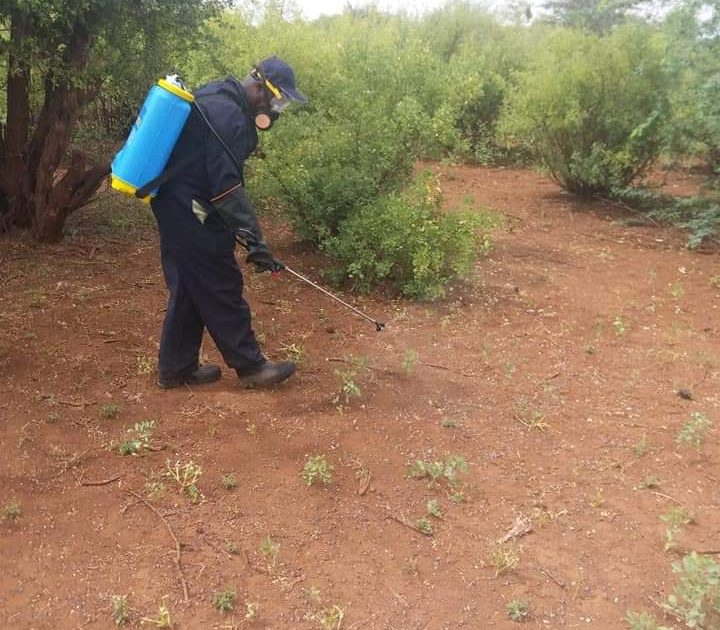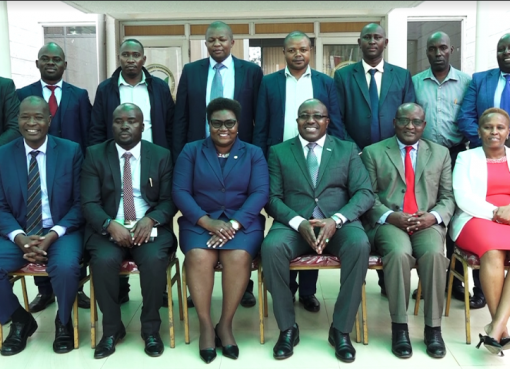The county government of Garissa has dispatched a team of 20 personnel each to Sankuri and Kamuthey areas where locust eggs have fully developed into nymph.
Speaking to KNA on phone on Thursday, the Agriculture CEC, Mohamed Shale said the exercise is meant to stop the deadly pest from further multiplying.
The second generation of locusts resulted from the initial invasions in the first week of January this year.
“The department has been preparing to control locusts after they hatched to stop further destruction of crops and pastures within the County,” Shale said.
“We are determined as a county to stop these pests before they are fully grown and cause more destruction to our fragile environment,” he added.
Shale said the spraying exercise is timely since all eggs have virtually hatched and the pest are at nymph stage.
The CEC thanked the national government through the Plant Protection Services branch for donating the Knapsack sprayers, Motorized sprayers and other equipment to be used in the exercise.
He added that National Drought Management Authority (NDMA) and the Agricultural Sector Development Support Programme (ASDSP) all based in Garissa have also been supporting the fight against locusts.
Shale called for enhanced support from the national government and other stakeholders, so as to control the desert locusts within this critical stage of their life cycle and enhance its preparedness for any possible new invasions.
During his visit to Kamuthey a fortnight ago, the Agriculture Cabinet Secretary (CS), Peter Munya who saw firsthand hatchling of wingless locust nymphs perched on crops and trees promised to deliver more equipment to prevent the spread of the desert locusts from causing more damage in Garissa County.
The CS said the national government will deploy a plane, three motorized sprayers and 50 specialized sprayers and 100 hand-held sprayers to be deployed at the Garissa Locust Response Base to protect the 400 km stretch of irrigation farms along the banks of River Tana in Garissa County.
By Jacob Songok





